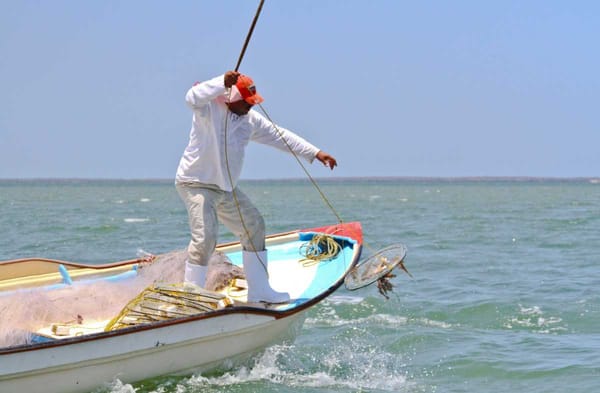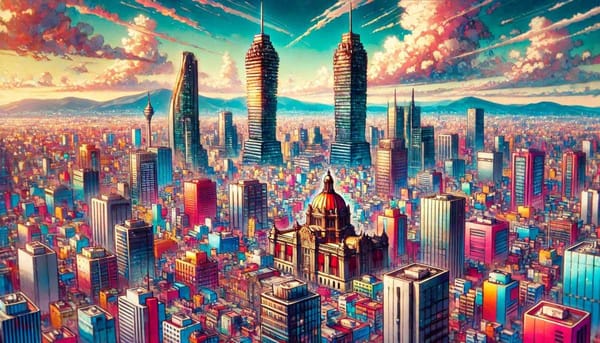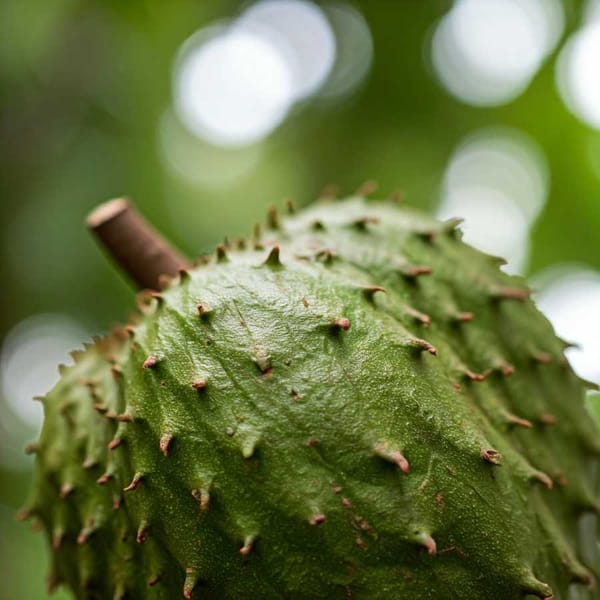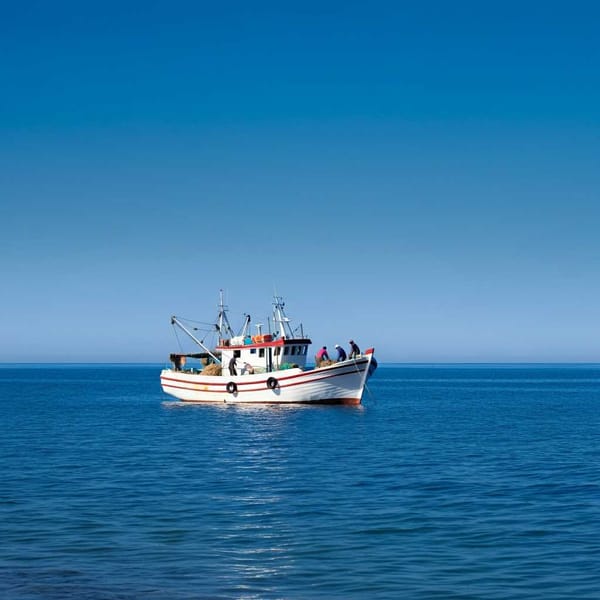President López Obrador Vows Justice for Marco Aurelio Rodríguez
President López Obrador addresses the murder of a journalist, Peru declaring him "persona non grata," defends cultural heritage, and takes a stand on legal issues and the economy in a morning conference. Read more.

The murder of journalist Marco Aurelio Rodríguez in Tehuacán, Puebla, has sent shockwaves through the journalism community. President Andrés Manuel López Obrador (AMLO) addressed the tragic incident during his morning conference today, revealing that the material authors of the crime have already been identified. However, due to the ongoing investigation, further details cannot be disclosed at this time.
Surprisingly, the President noted that the murder appears to be unrelated to Rodríguez's recent journalistic activities. This revelation has left many scratching their heads, wondering what could have motivated such a heinous act. The authorities are working diligently to bring the perpetrators to justice and shed light on the disturbing circumstances surrounding this case.
Peru Drama Unfolds
In a bold move that has ignited controversy, President López Obrador expressed his disdain for the Peruvian legislators who voted to declare him "persona non grata." With his characteristic flair, the President quipped that the population of Peru is far too vast for such a diminutive government.
Declaring that Mexico will not entertain economic or democratic relations with Peru until there is democratic normality in the country, the President stated firmly that he will not hand over the presidency of the Pacific Alliance to the current representative from Peru, Dina Boluarte. Instead, he tantalizingly hinted that he might consider passing the torch to Chile.
Casting doubt on the legitimacy of the Peruvian political landscape, President López Obrador labeled the dismissal of President Pedro Castillo as a "conspiracy of the elite." He even aimed at the US ambassador for her seemingly supportive comments about the Peruvian Congress's actions. The President called on the Peruvian people to seek new elections, warning that without a change, the country would remain trapped in a cycle of crisis after crisis.
Celebrating Pre-Hispanic History
In a heartwarming display of cultural pride, President López Obrador took a moment to emphasize the significance of recognizing Mexico's pre-Hispanic history. With a touch of nostalgia, he expressed his wish for everyone to acquaint themselves with the deep-rooted culture of the Mexican people.
Referencing the recent arrival of the 'Monster of the Earth' exhibit in Cuernavaca, Morelos, the President highlighted the collaborative efforts between the National Institute of Anthropology and History (INAH), the Mexican Ministry of Foreign Affairs, and the New York Prosecutor's Office. Their joint efforts led to the repatriation of the "Monument 9 of Chalcatzingo," a magnificent Olmec piece dating back to 400 BCE.
Radiating admiration for the sculpture's beauty and artistry, President López Obrador praised the Olmec piece as a splendid work of art. This renewed focus on Mexico's cultural heritage serves as a reminder of the nation's rich history and the need to preserve and celebrate it.
García Luna's Defender Faces Legal Backlash
The legal drama surrounding former Secretary of Security Genaro García Luna has taken another twist. President López Obrador revealed his intention to file a lawsuit against César de Castro, García Luna's lawyer. The President expressed his steadfast determination, stating, "I am waiting for the moment, but I am going to do it."
The President's decision was prompted by García Luna's public defender's attempts to implicate López Obrador in his client's drug trafficking charges. Fueled by political motives, the lawyer sought to involve the President in a web of allegations and insinuations. President López Obrador vehemently refuted these claims and stressed that he would not tolerate anyone, especially a foreigner, questioning his integrity and honesty as the President of Mexico.
Firmly asserting his position, the President made it clear that the lawsuit would be officially filed, seeking not only to clarify the matter but also to seek damages. He emphasized that the damage caused by these baseless accusations extended beyond himself; it affected the reputation of the Office of the President and the Mexican people as a whole.
Highlighting the gravity of the situation, President López Obrador referred to the lives lost during García Luna's tenure due to the alleged association between the government and criminal organizations. He declared that if any moral damages were to be compensated, it should benefit the children of the parents who tragically lost their lives during that dark period.
Accusing César de Castro of attempting to tarnish his image and openly slandering him, President López Obrador made it clear that there would be no complicity with anyone. He called for De Castro to clarify his actions and repair the damage caused by his misleading insinuations.
In a striking display of determination, the President sent a resounding message that the Mexican government would not tolerate such attempts to undermine its integrity. Justice would prevail, and those who sought to tarnish the President's reputation would be held accountable for their actions.
AMLO Speaks Out on US Elections and Fentanyl Trafficking
President López Obrador seized the opportunity to address a pressing issue affecting both Mexico and the United States—the treatment of migrants and the fight against drug trafficking. He passionately urged the migrant population not to support candidates in the United States who actively persecuted migrants, citing biblical principles as a guide to compassion and inclusivity.
Turning his attention to the grave issue of fentanyl trafficking, the President reaffirmed Mexico's commitment to bilateral cooperation with the United States in combatting the drug trade. Expressing his concern over the devastating impact of fentanyl consumption, particularly among young people, he emphasized the importance of a united front in tackling this issue.
President López Obrador revealed that Mexico had recently seized a shipment of fentanyl from South Korea, en route through Spain. He lauded the collaboration with China, highlighting their willingness to support efforts to combat the commercialization and trafficking of fentanyl. Negotiations were underway to establish agreements with both China and South Korea to prevent the entry of this deadly substance into Mexico.
Underscoring the urgency of the situation, President López Obrador dismissed attempts to exploit the fentanyl issue for political purposes. He called for a collective effort to address the problem rather than blaming Mexico, emphasizing the need for cooperation and understanding between nations.
Controversial Rulings and Economic Concerns
President López Obrador did not shy away from expressing his dissatisfaction with recent controversial legal decisions and economic concerns. He decried a judge's injunction granting Philip Morris, a vape company, the ability to circumvent regulations prohibiting the sale of vaping devices. Concerned for public health, the President affirmed that his administration would challenge the ruling and ensure the well-being of Mexican citizens.
Shifting his focus to the unfair trade practices of US companies regarding transgenic corn, President López Obrador lamented the resistance faced when attempting to investigate the potential damages caused by these products. Citing Mexico's rich variety of native corn, he stressed the importance of protecting indigenous seeds and the need for further research into the effects of transgenic corn.
The President passionately advocated for the separation of economic power from public power, citing past instances of rescue operations for banks at the expense of the State. He proposed the idea of a state-owned insurance company, emphasizing that this would not be an act of statism or communism but rather a means to ensure fair competition and better oversight of insurance payments. President López Obrador highlighted the need to separate economic interests from public welfare and proposed exploring the possibility of a digital platform for collecting and dispersing funds, potentially through the Welfare Bank.
In a surprising revelation, the President disclosed that the banking sector had earned a staggering 236 billion pesos in 2022, with Banamex alone raking in a profit of over 20 billion pesos. He emphasized that private banks should not solely rely on tax collection but also contribute their fair share to the nation's treasury.
Regarding the purchase of Citibanamex, President López Obrador reassured the public that when the financial operation takes place, all corresponding taxes will be paid. He delved into the historical context, recounting how the previous administration had facilitated the sale of Banamex without proper tax payment. However, he emphasized that the law had since changed, and any future transactions would be subject to taxation.
The President expressed the government's willingness to engage in the purchase of Citibanamex, with a clear commitment to paying the necessary taxes. He envisioned a scenario where the Mexican State could acquire a significant portion of the bank while allowing Mexican shareholders of all levels to participate in the remaining shares. This approach would ensure a fair and transparent transaction that benefits both the government and the Mexican people.
On a positive note, President López Obrador shared encouraging news about Mexico's economy. Inflation was decreasing, with the rate already at 6%. Basic service prices, such as electricity, water, and gas, remained stable, while food prices were on a downward trend. Despite the ongoing negotiations surrounding the US debt ceiling, the Mexican peso remained strong, making it the country with the highest currency value against the US dollar. Moreover, economic growth was evident, with the National Institute of Statistics and Geography reporting a 3.7% annual increase.
The President celebrated the recent investment in an oil company operating in the Gulf of Mexico, spearheaded by Carlos Slim's Grupo Carso. This investment would lead to the exploitation of an oil field rich in resources, ensuring increased production and bolstering Mexico's position as an energy powerhouse.
With a vigilant eye on the Southeast region of Mexico, President López Obrador announced his upcoming visit to supervise ongoing projects and evaluate plans for industrial parks in the Isthmus strip. These parks aimed to attract businesses by providing financial support and incentives, ultimately generating employment opportunities for the local population.




